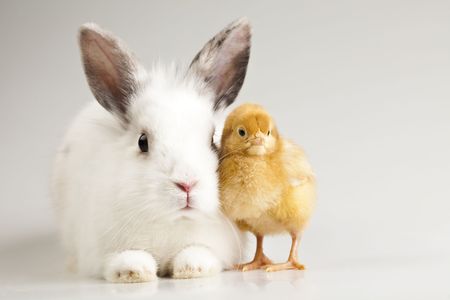Introduction to Guinea Pig Nutrition
When it comes to caring for guinea pigs in the UK, providing the right diet is fundamental to their health and happiness. Unlike many other small pets, guinea pigs have unique nutritional requirements that stem from their biology and natural environment. One of the most crucial aspects of their diet is their inability to synthesise vitamin C on their own, making them highly susceptible to deficiencies if not fed appropriately. The British climate also presents unique challenges, such as fluctuating temperatures and limited access to fresh forage during colder months, which can impact the availability of essential nutrients.
A balanced diet not only supports your guinea pig’s immune system but also ensures healthy teeth, skin, and digestion. Feeding them the right foods helps prevent common health problems such as scurvy, obesity, and gastrointestinal issues. In the UK, where weather conditions can limit outdoor grazing opportunities for much of the year, understanding how to supplement your guinea pig’s nutrition becomes even more important. The table below provides a quick overview of why each dietary component is essential for your pet’s wellbeing:
| Dietary Component | Main Function | UK-specific Considerations |
|---|---|---|
| Hay | Primary fibre source; maintains dental and digestive health | Ensure constant supply indoors during wet or cold months |
| Fresh Vegetables | Vitamin C and hydration | Rotate seasonal UK veg; avoid frostbitten produce |
| Pellets (Fortified) | Supplemental vitamins and minerals (esp. Vitamin C) | Select high-quality brands available in the UK market |
| Fresh Water | Hydration and overall health | Check bottles don’t freeze in winter or overheat in summer |
By understanding your guinea pig’s unique dietary needs within the context of the UK climate, you’ll be better equipped to make informed choices that promote long-term wellbeing for your furry companions.
2. The Basics: Hay, Fresh Water, and Daily Essentials
Ensuring your guinea pig receives a balanced diet starts with understanding their daily essentials. The foundation of every guinea pigs diet is high-quality hay, which is crucial for both digestive health and dental care. In the UK, timothy hay is widely recommended due to its ideal fibre content and palatability for cavies. Providing unlimited access to fresh hay supports natural chewing behaviour and prevents overgrown teeth, a common issue in guinea pigs.
Why Hay Matters
Hay not only aids in proper digestion but also keeps your guinea pig occupied and mentally stimulated. It should make up at least 80% of their daily intake. Avoid feeding lawn clippings or damp, mouldy hay, as these can be harmful to your pet.
Clean Drinking Water
Guinea pigs must have constant access to clean, fresh water. In the UK, a sipper bottle is preferred over bowls as it helps keep the water clean from bedding or food contamination. Change the water daily and regularly check that the nozzle isnt blocked. Tap water is generally safe across the UK, but if you use filtered water for yourself, its best to do the same for your pets.
Daily Essentials at a Glance
| Diet Component | Recommended Amount | Importance |
|---|---|---|
| High-quality Hay (Timothy/Meadow) | Unlimited | Main source of fibre; maintains dental & digestive health |
| Fresh Water | Always available | Prevents dehydration; supports kidney function |
| Daily Vitamin C Supplement* | 10-30mg/day | Essential for immune system and overall health |
*Note:
Guinea pigs cannot produce vitamin C on their own, so supplementing through specially formulated pellets or vitamin C drops in their food (not water) is vital.
By focusing on these daily basics—high-quality hay, abundant clean water, and essential supplements—you lay the groundwork for a healthy and happy guinea pig. These elements are universally advised by UK veterinarians and should never be overlooked in your pet’s routine care.
![]()
3. Fresh Veggies and Fruit: What’s Safe and What to Avoid
Guinea pigs thrive on a varied diet, and fresh vegetables and fruits are essential for providing them with necessary vitamins and minerals. However, not all produce is suitable for these small pets. Here’s a UK-specific guide to help you select safe options from your local supermarket or greengrocer.
Safe Vegetables for Guinea Pigs
Vegetables should make up the majority of your guinea pig’s fresh food intake. The following table lists common veggies available in the UK that are safe for daily or regular feeding:
| Vegetable | Frequency | Notes |
|---|---|---|
| Romaine lettuce (Cos lettuce) | Daily | Avoid iceberg due to low nutrients |
| Bell peppers (any colour) | Daily | Excellent source of Vitamin C |
| Cucumber | Several times/week | High water content, feed in moderation |
| Kale | A few times/week | High calcium, not daily |
| Coriander (Cilantro) | Daily | Aromatic herb enjoyed by most guinea pigs |
| Broccoli stems/florets | A few times/week | Can cause gas if overfed |
Other Suitable Veggies (Feed in Moderation)
- Spinach (occasional – high oxalates)
- Carrots (small amounts – high sugar)
- Celery (cut into small pieces to avoid choking)
Fruits: Occasional Treats Only
Fruits are high in sugar and should be offered sparingly as treats. Here are some popular UK options:
| Fruit | How Often? |
|---|---|
| Apple (remove seeds) | 1-2 times/week |
| Pear (remove seeds) | 1-2 times/week |
| Satsuma/Orange segments | Occasionally – vitamin C boost but acidic |
| Strawberry | Treat only – high sugar |
Fruits to Avoid Entirely
- Grapes and raisins (toxic risk, can cause kidney issues)
- Avo cado (contains persin, toxic to guinea pigs)
Unsafe Vegetables and Fruits to Avoid
Certain foods commonly found in British shops should never be fed to guinea pigs due to toxicity or digestive risks:
- Potatoes and potato leaves (contain solanine, highly toxic)
- Onions, leeks, garlic, chives (all Allium family, toxic)
- Mushrooms (not recommended – many types unsafe)
- Icesberg lettuce (can cause diarrhoea, little nutrition)
- Rhubarb (leaves and stalks are poisonous)
- Daffodil bulbs/leaves if foraged from gardens (toxic!)
A Quick Reference Table: Safe vs Unsafe Produce in the UK
| Safe Choices (in moderation) | Avoid Completely |
|---|---|
| Kale, coriander, romaine lettuce, bell pepper, cucumber, carrot tops, parsley, apple flesh, pear flesh, strawberry, celery stick. | Avo cado, onion family, potatoes, rhubarb, mushrooms, daffodils, iceberg lettuce. |
The best approach is to offer a variety of safe vegetables daily and fruits only occasionally. Always introduce new foods gradually and observe your guinea pig for any changes in appetite or droppings. Wash all produce thoroughly to remove pesticides or residues before feeding.
4. Vitamin C: Why It Matters and UK-Friendly Sources
Guinea pigs are unique among small pets because, like humans, they cannot produce their own vitamin C. This essential nutrient plays a vital role in supporting their immune system, maintaining healthy skin, joints, and gums, and aiding wound healing. A deficiency can lead to serious health problems such as scurvy, which manifests through lethargy, poor coat condition, swollen joints, and loss of appetite.
Why Vitamin C is Crucial for Guinea Pigs
Vitamin C is required daily because it isn’t stored efficiently in the guinea pig’s body. Without a regular supply, your pet is at risk of developing preventable health issues. Since commercial guinea pig pellets may lose vitamin C content over time, especially if not stored properly or consumed promptly, its important to supplement their diet with fresh sources regularly.
UK-Friendly Sources of Vitamin C
Providing a variety of fresh fruit and vegetables is the most natural way to ensure your guinea pig receives adequate vitamin C. The following table highlights some safe and readily available options in the UK:
| Food Item | Vitamin C Content (mg/100g) | Feeding Recommendation |
|---|---|---|
| Kale | 120 | Offer 2-3 times per week; rich but can cause gas if overfed. |
| Bell Peppers (Red) | 140 | Daily treat; sweet and well-tolerated by most guinea pigs. |
| Broccoli | 89 | A few florets weekly; avoid large amounts due to potential bloating. |
| Coriander (Cilantro) | 27 | Ideal for frequent feeding; most guinea pigs enjoy the taste. |
| Parsley | 133 | A couple of sprigs 2-3 times per week; avoid excess due to high calcium. |
| Strawberries | 60 | Treat only; feed sparingly due to sugar content. |
Supplements: When and How to Use Them in the UK
If your guinea pig struggles to consume enough vitamin C-rich foods or has special dietary needs, supplements can be helpful. In the UK, you can find vitamin C supplements formulated specifically for guinea pigs at local pet shops or veterinary clinics. These are typically available in tablet or liquid form. It’s best to offer tablets directly as treats or crush them into food rather than adding liquid drops to water—this prevents altered taste and encourages consistent intake.
Key Points for UK Pet Owners:
- Select locally available fresh produce for natural vitamin C sources.
- Avoid citrus fruits like oranges as they can upset your pet’s stomach despite being high in vitamin C.
- Store pellets in cool, dry places and use within their expiry date to maximise retained nutrients.
- If using supplements, choose those labelled specifically for guinea pigs and follow dosage instructions carefully.
Your guinea pig’s health depends on consistent vitamin C intake. By combining a varied diet of UK-friendly fresh foods with quality supplements when needed, you’ll help your pet thrive year-round.
5. Treats and Commercial Food: Navigating UK Brands Responsibly
When it comes to selecting commercial food and treats for your guinea pigs, the UK market offers a variety of options. It is essential to make informed choices to ensure your pets’ health and happiness. Not all products on the shelves are created equal—some contain unnecessary additives or unhealthy ingredients that can harm your guinea pig over time.
Choosing the Best Commercial Foods
Look for reputable UK brands that prioritise natural ingredients and avoid artificial colours, flavours, or added sugars. The best guinea pig pellets should be fortified with stabilised vitamin C, as guinea pigs cannot synthesise this vitamin themselves. Avoid mixes with seeds, nuts, or dried fruit as these are often high in fat and sugar, which can contribute to obesity and digestive issues.
| Brand | Main Features | Vitamin C Fortified |
|---|---|---|
| Burgess Excel | High fibre, no artificial colours/flavours | Yes |
| Science Selective Guinea Pig Food | No added sugar, rich in natural ingredients | Yes |
| Supreme Petfoods Tiny Friends Farm | Vegetable-based, palatable pellets | Yes |
Treats: Healthy vs Harmful Options
Treats should only make up a small portion of your guinea pigs’ diet. Opt for healthy choices such as fresh herbs (parsley, coriander), small pieces of carrot or apple (in moderation), or shop-bought treats specifically labelled safe for guinea pigs. Always check ingredient lists—avoid products with honey, yoghurt drops, or dairy content.
| Treat Type | Healthy? | Notes |
|---|---|---|
| Fresh herbs & vegetables | Yes | Provide vitamins and enrichment; serve daily in moderation |
| Dried fruit treats | No | High in sugar; may cause digestive upset |
| Yoghurt drops/pet “cookies” | No | Dairy is unsuitable for guinea pigs; avoid entirely |
Shopping Tips for UK Pet Owners
- Select single-ingredient snacks when possible (e.g., dried dandelion leaves)
- Avoid seed and nut mixes which can pose choking hazards and are not nutritionally appropriate
- Always read labels carefully for hidden sugars or artificial additives
- If unsure about a product’s suitability, consult your local vet or a small animal nutritionist familiar with current UK guidelines
Avoiding Common Pitfalls in the UK Market
The British pet shop landscape includes both trusted high-street chains and independent retailers. While many offer quality products, always research unfamiliar brands before purchasing. Remember: just because a treat is marketed for guinea pigs does not guarantee it is healthy or necessary. By making mindful choices and prioritising natural nutrition, you’ll support your guinea pigs’ wellbeing every day.
6. Common Feeding Mistakes and How to Avoid Them
Even the most well-meaning guinea pig owners in the UK can make diet-related errors that impact their pets health. By recognising these pitfalls, you can ensure your guinea pig thrives on a balanced and nutritious diet.
Frequent Feeding Mistakes
| Mistake | Description | Why Its Harmful |
|---|---|---|
| Insufficient Hay Intake | Not providing unlimited access to fresh hay daily. | Leads to dental problems and digestive issues. |
| Too Many Fruits or Treats | Feeding excessive sugary treats or fruit. | Can cause obesity and upset stomachs. |
| Lack of Vitamin C | Failing to supplement with vitamin C-rich foods or supplements. | May result in scurvy, a serious health condition in guinea pigs. |
| Incorrect Pellets | Using rabbit food or muesli-style mixes instead of species-specific pellets. | Lacks essential nutrients; can lead to selective feeding and malnutrition. |
| Unsafe Foods | Offering foods toxic to guinea pigs (e.g., iceberg lettuce, potatoes). | Toxicity can cause illness or even be fatal. |
Practical Tips for Prevention
- Prioritise Hay: Always keep timothy or meadow hay available in your guinea pig’s hutch. Replace it daily to maintain freshness and hygiene.
- Balance Fresh Produce: Offer a variety of leafy greens each day, but limit high-sugar fruits like apples and strawberries to occasional treats (no more than twice per week).
- Supplement Vitamin C: Choose pellets fortified with vitamin C and provide small amounts of bell peppers, kale, or broccoli as part of their regular vegetable mix.
- Select the Right Pellets: Only purchase guinea pig-specific pellets from trusted UK pet shops. Avoid products labelled for rabbits or general rodents.
- Avoid Toxic Foods: Familiarise yourself with unsafe foods—never feed potatoes, onions, garlic, avocado, or any processed human snacks. When unsure, consult a vet specialising in small animals.
The Importance of Routine
Establish a consistent feeding routine by offering meals at similar times each day and monitoring your guinea pig’s appetite and weight. Sudden changes in eating habits may indicate illness and should prompt a visit to your local veterinary practice.
If you’re ever uncertain about your pet’s diet, consult with a UK-registered veterinary nurse or seek advice from reputable sources such as the RSPCA or British Small Animal Veterinary Association (BSAVA).


